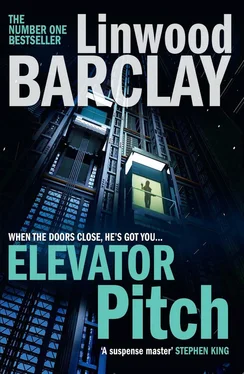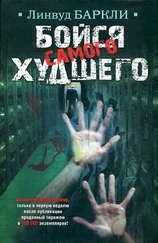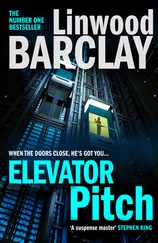Barbara ran into the building, cleared further checkpoints, and headed to the mayor’s office, where she encountered even more security.
“Please,” she said to the female guard. “I need to see him.”
“You’re gonna have to deal with the media liaison department if you—”
The door to the mayor’s office opened. Valerie Langdon emerged.
“Valerie!” Barbara shouted. She quickly followed that with, “Ms. Langdon!” She and the mayor’s assistant had never been on a first-name basis.
Valerie turned, saw who it was, and hesitated.
“It’s important,” Barbara said.
Valerie approached. “What do you want?”
“I need to talk to him.”
“You and every other reporter between here and California,” she said.
Barbara took two seconds to compose herself. “I think I know why,” she said.
Valerie’s head tilted to one side. “Why what?”
“Why it’s happening.”
“Tell me.”
“I think it’s about him,” she said.
“Say again?”
“I think the elevator incidents are about the mayor.”
“That’s insane.”
“Maybe,” Barbara said. “But I want to bounce something off him.” Valerie took ten seconds to make up her mind. “Come with me,” she said.
Valerie made Barbara wait outside the door to the mayor’s office. She reappeared less than a minute later.
“He’ll see you,” she said, a hint of surprise in her voice.
Valerie did not follow Barbara into the office. The mayor was leaning up against his desk, watching the TV on mute.
“Close the door,” he said.
Barbara closed the door.
“Have a seat,” he said.
Barbara took a spot on the couch and Headley sat in a chair opposite her. He slapped his palms on top of his thighs and leaned forward. “So, what’s this important thing you want to tell me?”
“There’s a common thread to the elevator events,” Barbara said.
“I know,” the mayor said, shrugging. “Similarities in... technique.”
“I’m not talking about the cameras.”
Headley’s eyebrows went up. “So you know about that.”
She nodded. “I’m not talking about how it was done. I think I know why it might have been done.”
Headley leaned back in his chair, crossed his arms, as if daring her to impress him. “Shoot.”
“I think it’s about you.”
A long pause. Then, “Go on.”
“All three buildings are either owned, or occupied, by major supporters of your campaign. Especially the one this morning. The Gormley Building.”
“I don’t know anyone named Gormley.”
“Maybe not, but you do know Arnett Steel. He lives in the penthouse.”
Headley said nothing.
“And the Sycamores, that was where—”
“I know,” he said. “Margaret Cambridge.”
“I think someone is sending a message to you, and those who’ve enabled you,” Barbara said. “I think this... I think this is about revenge.”
Headley slowly shook his head. “Your theory seems... thin.”
“Do you have a better one?” Barbara asked.
“Several leads are being followed. An alt-right domestic terror group could be behind this. That theory is already out there. It strikes me as the most credible one. My guess is you’d just love for these events to have something to do with me. It’d fit the narrative you’ve set forth.”
“That’s not true,” Barbara said. “I’m not here as a reporter. I’m — okay, that’s bullshit. I am here as a reporter. But I want to see whoever’s doing this caught just as much as you do. I want this to end.” She paused. “I watched Paula Chatsworth die. This isn’t just another story for me.”
“It’s personal,” the mayor said.
Barbara nodded.
“Personal in more ways than one,” Headley said with a sly smile.
“I don’t know what you mean.”
“I think you do.” He smiled. “Were you surprised when I so readily agreed to see you?”
“Um, maybe a little.”
“I had Valerie show you in because I wanted to congratulate you.”
“For?”
“Your audacity. The genius of it. Planting someone right here at City Hall. Getting someone on the inside. I have to hand it to you.” He suddenly got up, went back to his desk, shuffled some papers, trying to find something. “It’s here somewhere,” he said. “I asked for the file. On new hires.”
Arla.
“Doesn’t matter,” Headley said, abandoning the search and heading for the door, getting ready to show her out. “I’ll find it later. But I’ve been informed that you have a member of your family working for us. Am I right about that?”
Barbara nodded slowly. “Yes.”
“Your daughter?”
“Yes. But it’s not what you think. She did it entirely on her own. If you want to know the truth—”
“That’d be a twist.”
“If you want to know the truth, I think she took the job, in part, just to get under my skin. She knew that working for your administration would not go over well with me. Our relationship is... complicated. But she got the job because she’s good at what she does. She deserves it.”
“So you say,” Headley said. “Forgive me for being skeptical. Anyway, whatever game you and your daughter may or may not be playing here, it’s over. As is her employment with the City of New York.”
He opened the door, inviting her to leave. But instead of walking out, Barbara went to his desk and grabbed the sheaf of papers he’d been going through.
“Hey!” the mayor said. “Don’t touch my—”
She quickly found what she was looking for. She waved one sheet in the air and scattered the rest onto his desk. “You were hunting for this. My daughter’s job application.”
“I hadn’t had a chance to read it yet. But I know what I need to know.”
“Do you? Do you know her name?”
The mayor shrugged. A no.
“Arla,” Barbara said, heading for the door. She slapped the sheet of paper against Headley’s chest as she passed him. “Arla Silbert.”
She met Headley’s eyes for a fraction of a second as she walked out.
Barbara had her head down as she walked briskly away from the mayor’s office, but not, as was most often the case, because she was looking at her phone. Her head was down because she did not want anyone to see her cry.
If it had not been for the tears blurring her vision, she might have seen Chris Vallins instead of running right into him.
“Sorry,” she blurted, and looked up. “Oh, shit.”
“Jesus,” he said, seeing the tears. “What’s happened?”
“Nothing,” she said, trying to steer around him. But this time, it was his turn to hold her by the arm and steer her toward the closest door.
It wasn’t a ladies’ room this time, or a men’s. He ushered her into a conference room that was outfitted with one rectangular table and about a dozen wheeled office chairs.
“Talk to me,” he said, putting her into one of them. He took another one and wheeled it around so he was facing her, knees touching.
“I don’t want to talk about it,” Barbara said. “I’m fine.”
She dug into her purse for a tissue and dabbed her eyes.
“You were in talking to Headley?”
She nodded.
“About?”
Barbara swallowed, sniffed. “He’s the link. Wherever an elevator’s gone down, it’s been a building with a major political donor. To his campaign. I think that’s what this is about.”
Vallins said, “Whoa.”
Another sniff. She went into her bag for another tissue and blew her noise.
“What did the mayor say?”
“He dismissed it,” she said.
Vallins leaned in close, his head nearly touching hers. He saw a tear running down her cheek and caught it with his finger.
Читать дальше
Конец ознакомительного отрывка
Купить книгу








![Линвуд Баркли - Последний выстрел [litres]](/books/412435/linvud-barkli-poslednij-vystrel-litres-thumb.webp)



